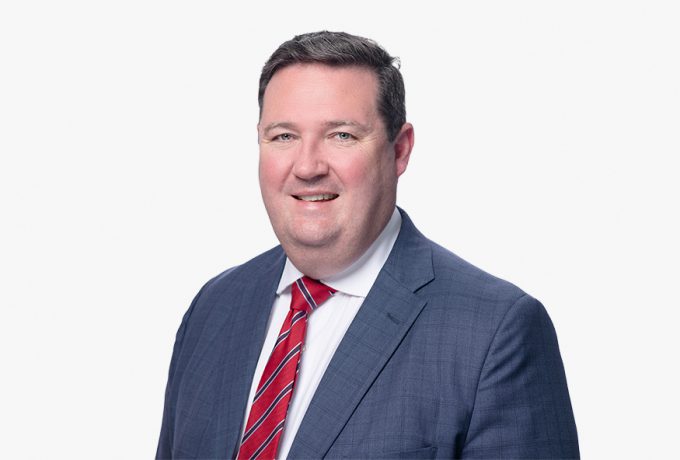
Superannuation changes announced in the Budget are beneficial in nature and mainly target increasing flexibility and contribution opportunities for individuals over age 60.
Key take-aways
- Removal of work test for non-concessional superannuation contributions made from 1 July 2022.
- Reduction in eligibility age where downsizer contributions can be made into superannuation from 65 to 60 years, effective from 1 July 2022.
- Increase in amount of superannuation savings a first home buyer can access to purchase a first home from up to $30,000 to up to $50,000.
Removal of work test for non-concessional superannuation contributions
The Government announced it proposes to permit individuals aged 67 to 74 to make non-concessional (after-tax) contributions to superannuation on the same terms as those currently applying to individuals under age 67 by removing the work test for contributions made from 1 July 2022.
Currently, individuals aged 67 and over are subject to a work test, which requires the individual to have worked a minimum of 40 hours over a consecutive 30-day period in the financial year in order to make a voluntary superannuation contribution that year (either concessional or non-concessional). Although the work test will be removed for non-concessional contributions from 1 July 2022, the test will be retained for personal deductible (i.e. concessional) contributions.
The removal of the work test for older Australians also includes increasing access to the bring-forward rule for non-concessional contributions. The bring-forward rule can allow an individual to make three years of non-concessional contributions in one year (e.g. up to $330,000 from 1 July 2021). However, the ability to make non-concessional contributions will continue to be subject to an individual’s total superannuation balance being less than the transfer balance cap (currently $1.6m increasing to $1.7m from 1 July 2021) at 30 June of the prior year.
Extending voluntary contribution opportunities to individuals who may otherwise miss out because they are no longer working is a welcome initiative. However, the failure to remove the work test in its entirety adds complexity due to the difference in treatment of non-concessional contributions compared to concessional contributions from age 67.
Reducing the age of eligibility from 65 to 60 years for downsizer superannuation contributions
The Government announced that it will reduce the eligibility age where downsizer contributions can be made into superannuation from 65 to 60 years of age, with the changes expected to come into effect from 1 July 2022. These measures will allow a person aged 60 or over to make a one-off non-concessional contribution
to their superannuation of up to $300,000 from the proceeds of selling their principal residence owned for ten years or more prior to the sale.
Downsizer contributions do not count towards superannuation contribution caps and are permitted irrespective of a total superannuation balance. Contributions under the measure are available to an individual and their spouse even if only one of them was the owner of the property (i.e. both may contribute up to $300,000 each from the sale if they each satisfy the conditions).
The measure is a targeted reduction in super restrictions that should provide increased incentive for older individuals to downsize sooner, thereby increasing the supply side of available family homes.
Increase in maximum releasable amount for First Home Superannuation Saver Scheme
The Government announced an increase in the amount of superannuation savings a first home buyer can access to purchase a first home.
Under the current scheme, up to $15,000 of voluntary superannuation contributions a year can be accessed early for the purchase of a first home, with a total withdrawal amount of up to $30,000 permitted. Under the revised scheme, the annual $15,000 voluntary contributions amount remains, but eligible individuals will be able to withdraw up to $50,000 in total of eligible super savings for a first home purchase. This revised scheme is expected to commence from 1 July 2022.
Contributions and associated earnings that are withdrawn under the scheme are taxed at the individual’s marginal tax rate, less a 30 per cent tax offset. In most circumstances, the net tax paid on contributions and earnings withdrawn under the scheme would be in the order of 15%. As such, this is likely to be a better outcome compared to the first home deposit being saved personally where ordinary marginal tax rates would apply on earnings.
Most first home buyers would benefit from using the scheme and the Government announced some further technical changes to reduce complexity and unintended outcomes which should make the scheme more accessible to first home savers.
Self-managed superannuation funds and legacy pension conversion
The Government stated it will permit individuals to exit legacy pension products, together with any associated reserves, for a limited period of two years.
The measure is stated to apply to market-linked pensions, lifetime pensions and life-expectancy pensions in self-managed superannuation funds. Currently, these pensions can only be converted into another pension where access to the underlying capital is generally restricted, with significant tax and estate planning issues arising on such a restructure.
The Government also stated that the social security and tax treatment will not be grandfathered for new pensions commenced with commuted funds and that commuted reserves will be taxed as an assessable contribution. Accordingly, the detailed rules and individual circumstances will need to be examined before deciding whether conversion of a legacy pension under this measure is optimal for those who may become eligible to do so.
The measure is stated to apply from the first financial year after the date of Royal Assent of the enabling legislation.









